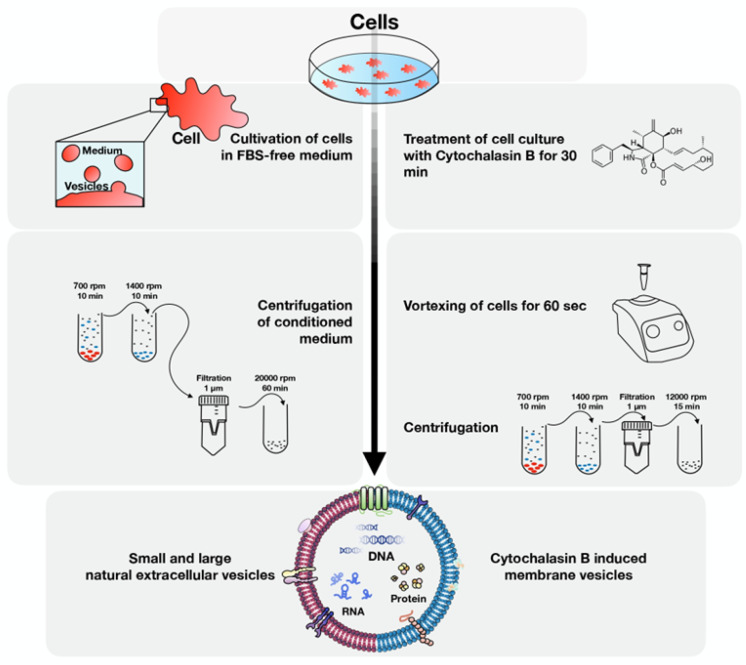Gene and Cell Technologies Lab continues studies of mesenchymal stem cells and extracellular vesicles

A paper saw light in Current Issues of Molecular Biology.
The Russian Science Foundation-funded project # 21-74-10021 is titled ‘Formation and modulation of drug resistance of tumor spheroids under the influence of induced membrane vesicles of human stem cells and transformed cells’ and is headed by Research Associate of the Laboratory of OMICS Technologies, Associate Professor Valeriya Solovyeva.
Co-author, PhD student and Research Associate Zarema Gilazieva explains, “Vesicles are cell structures comprising cell membranes. They include a cytoplasm and a double lipid layer. Vesicles partake in various processes – from blood coagulation to pathologies, such as inflammations or tumor growth. We research vesicles obtained from stem cells and tumor cells. Vesicles were extracted either through induction by cytochalasin B or through ultracentrifugation.”
The team then compared vesicles and found out that, according to Gilazieva, “…those groups of vesicles are much alike. They contain a mix of vesicles of intracellular and membrane origin and can interact with various cultures of tumor cells. Vesicles were measured, we analyzed their main markers, the presence of nuclei and mitochondria, and determined their molecular composition.”
She states that the research proves that cytochalasin B is indeed a good fit to obtain vesicles. The opinion is shared by Junior Research Associate Aleksei Ponomarev, who adds, “Additionally, this type of vesicles can be used for target delivery of drugs.”
Director of the Center for Precision and Regenerative Medicine, Professor Albert Rizvanov notes, “Stem cells can be used for treatment of various diseases, but their production and logistics are very costly and require ultralow temperatures and high-tech laboratories in hospitals. There is also a risk that cells can turn bad and will uncontrollably transform into ‘wrong’ types or tumor cells. Vesicles, while possessing many properties of cells, cannot divide and can be dry-stored in common refrigerators, which makes them a promising platform for a new class of medications.”

